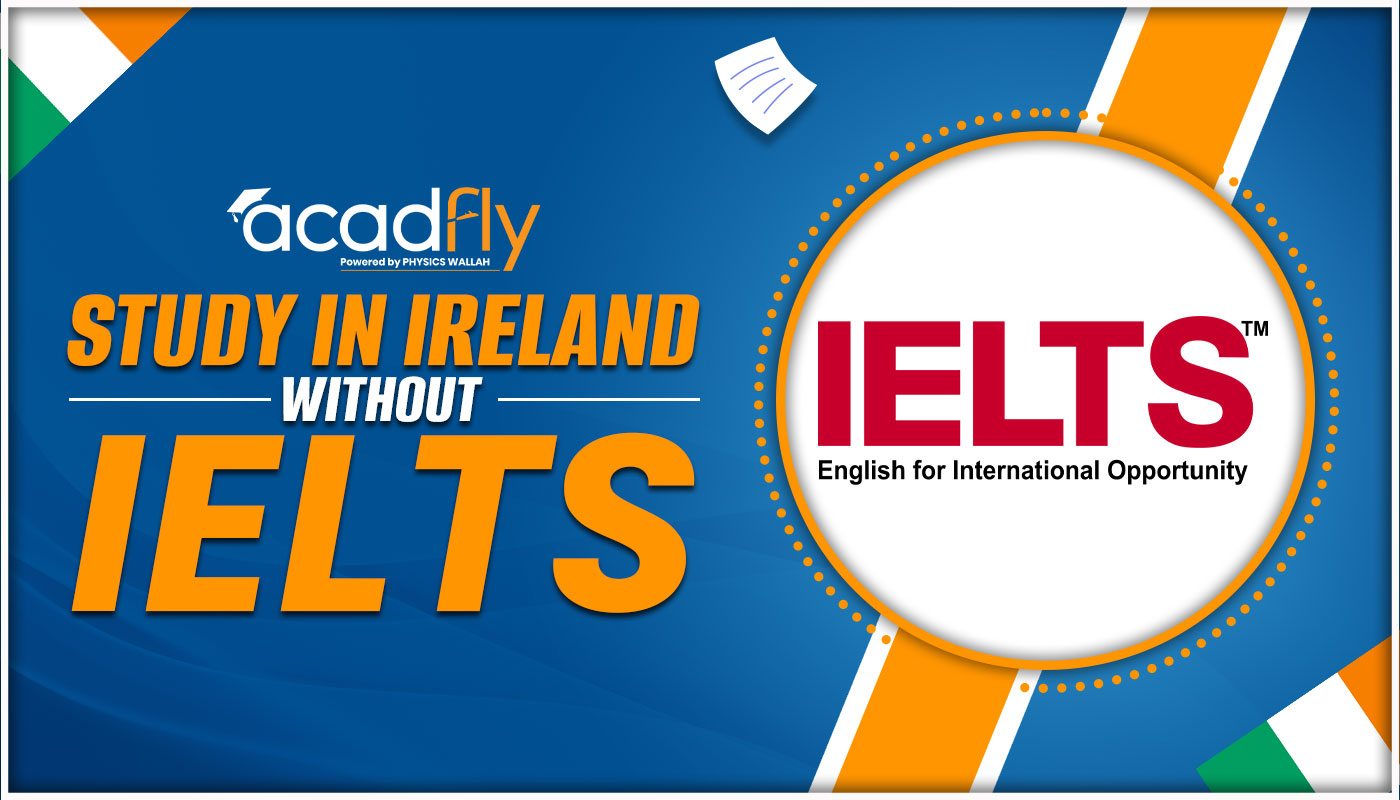

There is a very important decision everyone who wants to become a teacher has to make: determining the right institution for getting an education. The education sector in Canada is globally recognized and offers many teaching programs. In this article, you will learn about the top Canadian universities for education degrees, as well as teaching courses in Canada and how to become a teacher. We will also delve into details meaningfully applicable to international students, specifically of Indian origin.
What Makes Canada an Ideal Place for Educational and Teaching Programs?
High Education System & Culture in Canada
Canada is acknowledged for its education system, diverse culture, and affordable fee structure for international students. The teaching courses that are available in the country range from undergraduate to postgraduate degrees and short-term courses, offering students a plethora of choices. The inclusive and supportive educational environment in Canada also contributes to its appeal, with a focus on fostering a collaborative learning experience and a strong emphasis on student well-being.
Positive Aspects of Learning Education in Canada
-
Quality Education: Canadian universities are known worldwide for their high academic standards and innovative teaching methods. Institutions continuously update their curricula to include the latest educational research and trends, ensuring that students receive relevant and up-to-date training.
-
An Array of Opportunities: Students can study a variety of specialized programs such as early childhood education, special education, and educational leadership. These programs are designed to equip future educators with the skills and knowledge needed to address diverse learning needs and challenges in various educational settings.
-
Cultural Diversity: Living, studying, and learning in a multicultural nation like Canada will allow students to expand their repertoire of knowledge. Exposure to diverse cultures and perspectives enriches the learning experience and prepares students to work effectively in diverse classrooms.
-
Teaching with a Conscience: Graduates will be well-equipped to base their teaching on an understanding of basic human rights and responsibilities, which can lead them into careers that realize those ideals. Canadian educational programs often include components focused on social justice, equity, and inclusive education.
University Programs in Canada for Education
Canadian universities have made a reputation in the education and teaching field. Check out the best schools offering teaching courses in Canada:
The University of British Columbia (UBC)
-
About Course: B.Ed, Master of Education (M.Ed.), Doctor of Philosophy (Ph.D.) in Education
-
Major Areas of Research: Curriculum and Pedagogy, Educational Administration, Special Education
-
Improvements: UBC offers a research-friendly atmosphere with a strong emphasis on experiential learning and internationalization. Students have access to state-of-the-art facilities and resources that support their academic and professional growth.
University of Toronto
-
The Ontario Institute for Studies in Education (OISE): One of the largest and most respected faculties of education in North America.
-
Focus Area Options: B.Ed., M.Ed., Master of Arts in Child Study and Education (MA-CSE), Ph.D. in Education
-
Areas of Interest: Education Leadership, Higher Ed, Counseling Psychology
-
General Notes: OISE is a world leader in research and teaching, with professors who are at the forefront of educational practice. The institute's commitment to innovation and excellence is reflected in its diverse range of programs and research opportunities.
McGill University
-
Types: B.Ed., M.Ed., Ph.D. in Education
-
Subject Specializations: Special Education, Neuroscience in Educational Theory about Physical and Health
-
McGill: McGill offers opportunities for fieldwork and community projects within a collaborative learning environment. The university's emphasis on interdisciplinary approaches and community engagement enhances the learning experience.
University of Alberta
-
Programs: B.Ed., M.Ed., Ph.D. in Education
-
Concentrations: Early Childhood Education, Secondary Education, and Technology in Education
-
Takeaway: The University of Alberta offers plenty of hands-on experience, preparing students with practical skills and knowledge. The faculty's commitment to research and professional development ensures that graduates are well-prepared for diverse educational roles.
Simon Fraser University
-
Courses: B.Ed., M.Ed., Ph.D. in Education
-
Areas of Concentration: Educational Technology and Environmental & Indigenous Education
-
Snapshot: SFU applies practical education, allowing students to get involved in real-life projects within the community. The university's focus on experiential learning and community engagement provides students with valuable hands-on experience.
How to Become a Teacher in Canada
The process of becoming an educator in Canada varies from gaining the appropriate education and certification.
Step 1: Earn a Bachelor's Degree in Education
To become a teacher in Canada, you need to complete your Bachelor of Education (B.Ed.) from a college or university accredited by the appropriate authority. A typical program is four years long and includes courses in educational theory, teaching methods, and a specific field (e.g., math or biology). The program usually combines classroom instruction with practical teaching experience to ensure that graduates are well-prepared for the classroom.
Step 2: Build Experience in the Real World
Nearly all pre-service teacher education programs in Canada include a practicum or student teaching component where students work with children (or sometimes adolescents) in the classroom. This practical experience is crucial in building teaching intuition and classroom management skills. During the practicum, students apply their theoretical knowledge in real-world settings, gaining valuable insights into the challenges and rewards of teaching.
Step 3: Get Certified as a Teacher
With an education degree, you must find the provincial or territorial regulatory body to get certified. Requirements and processes for teacher certification vary among provinces, so be sure to research what is needed for where you are. Certification typically involves passing examinations and meeting specific professional requirements set by the regulatory body.
Step 4: Stay Active in Continuing Education
Canadian registered teachers are encouraged to sign up for sessions to stay updated on the latest educational trends and improve their teaching skills. Numerous universities and professional organizations provide educational workshops, courses, or conferences. Continuing education helps teachers stay current with new teaching methods and technologies, enhancing their effectiveness in the classroom.
List Of Courses To Teach At Canadian Universities For International Students
Each course in Canada is student-oriented and designed to support individuals from any corner of the world.
short term teaching courses in Canada
Many schools also offer certificate and diploma courses in education for those interested in short-term programs. These courses can be beneficial for those who wish to build on their experience or focus more deeply on a particular area of education that aligns with current research-informed best practices. Short-term programs are ideal for professionals seeking to enhance their credentials or shift their focus within the field of education.
Courses and Cost of teaching courses in Canada for Indian students
In Canada, there are numerous undergraduate degree courses as well as postgraduate programs for Indian students to study teaching. Public universities in Canada provide a great study environment for Indian students, with all the necessary resources and support needed for their academic success as well as social life. Financial aid and scholarship opportunities may also be available to help offset the costs of tuition and living expenses.
International Students Support
From language support to cultural adjustment programs, international students at Canadian universities have access to a plethora of resources aimed at making life more comfortable for newcomers. These resources are enough to support them in their academic and Canadian life. Universities often offer orientation programs, counseling services, and student clubs to help international students integrate into campus life and adapt to their new environment.
FAQs:
1. Teaching Courses for International Students in Canada?
In addition to common requirements for international students, each university specifies its admission terms, such as English proficiency test scores (e.g., TOEFL or IELTS), officially certified high-school graduation grades, and financial documentation of sufficient funds. A student visa is also required.
2. How long does it take to become a teacher in Canada?
On average, it takes about four to five years to become a qualified teacher in Canada, including time spent on obtaining your Bachelor of Education and any additional qualifications needed.
3. Do education programs offer scholarships for international students?
Scholarships for international students in education M.Ed. programs are available. Please refer to the university you are interested in for any possible scholarships.
4. Am I allowed to do part-time jobs?
While studying in Canada, international students are permitted to work part-time and full-time during scheduled breaks if they have a valid study permit containing employment authorization.
5. Education Graduates Careers in Canada?
Graduates with an education degree in Canada can work as teachers or retired educators, educational consultants, and curriculum developers, among other positions within the educational field.
Conclusion
The choice of the best Canadian university for an education degree is a significant step toward a prosperous career as a teacher. With numerous programs available, supportive environments, and opportunities for professional growth in Canada, both domestic and international students have access to excellent resources and guidance tailored to their needs. The diversity of educational programs and the emphasis on practical experience ensure that graduates are well-prepared for a successful career in education.
Frequently Asked Questions









